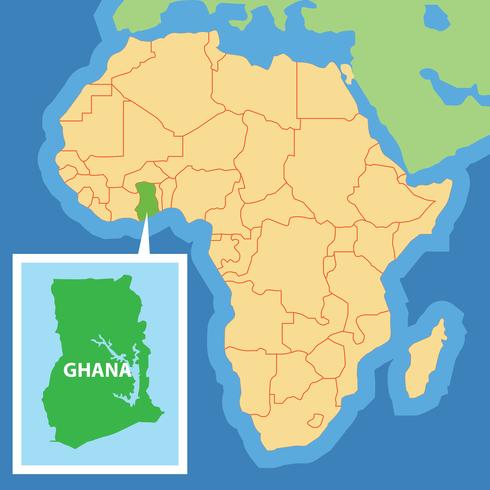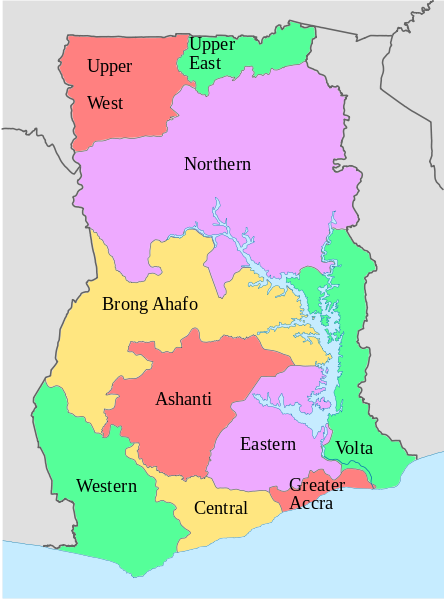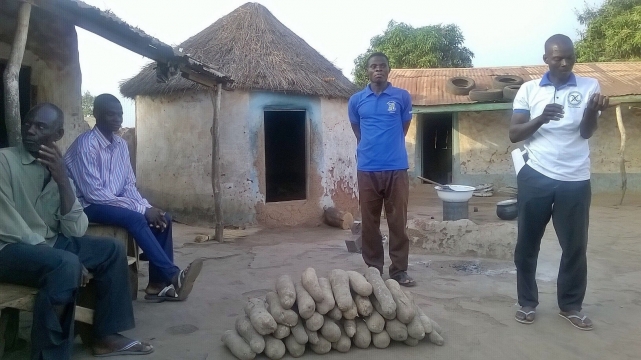A Letter from Ruth Brown, soon to serve in Ghana
June 2018
Write to Ruth Brown
Individuals: Give online to E200528 for Ruth Brown’s sending and support
Congregations: Give to D507542 for Ruth Brown’s sending and support
Churches are asked to send donations through your congregation’s normal receiving site (this is usually your presbytery)
“UwumbƆr cheen si!” (May God be with you!)
Sing to the Lord a New Song! … in Likpakpaaln, the language of the Konkomba people.
In the Northern Province of Ghana, Muslim students attend Christian services at a university directed by a pastor of the Evangelical Presbyterian Church of Ghana. And, as a recent visitor to another area of northern Ghana, the Saboba district, explained, “Christians and Muslims seem to respect each other and live together in harmony. The community welcomed us warmly. The people have a great inner joy.” This sounds like a community of people who have much to teach us! I will begin this learning experience this July and look forward to providing more information to you about these joyful people!
In late April, because my resident visa application to the Zimbabwe government office had never been approved, World Mission staff explained to the Zimbabwe church partners that I would be ending my plans to work with them in order to accept an invitation from another African church. Early this July, I will begin a new partnership in mission with a move to northern Ghana. The Evangelical Presbyterian Church of Ghana (EPCG) has invited me into partnership with them for the implementation of a Community Health Evangelism (CHE) program.
CHE is a community-based program that begins with Bible study in small community groups. Bible study generates discussion of responsibilities to neighbors. Using the CHE curricula, community concerns, needs, and resources are reviewed. Along with Bible study, neighbors study models of community development. The study groups learn ways of prioritizing common needs and finding resources to address these concerns by forming sustainable community-based coalitions. In this work, my public health background will be helpful, as major concerns often relate to hunger, malnutrition, potable water, sanitation, and disease control.
The main city in the area to which I will be going is Yendi, but Saboba has been suggested as a more enjoyable place to live because of its vibrant and welcoming church community. There will be opportunities to relate to communities as far south as Bimbilla, where the EPCG has a teacher-training college, and north to Chereponi, where there is an agricultural development office. In between these cities, the EPCG operates a small hospital in Wapuli, a secondary school and agricultural development office in Saboba, and a high school in Tatale. The latest (spring) edition of Oxfam’s Close-Up magazine is online, and a feature article on pages 10-13 tells of Oxfam’s partnership with a Presbyterian agricultural development program for improving nutrition in Ghana’s Northern Region.
I hope to visit the town of Gnani frequently because it houses a camp for women who have been exiled from their homes because they were accused of practicing witchcraft. Ghana used to have at least 100 of such camps, but the number has mercifully dropped to about 10 locations.
There are three languages in the area — English, Likpakpaaln, and Dagbani. I’ve been informed that I would likely “get by” communicating in English, getting the help of a translator when working in villages. I hope to learn the Likpakpaaln language and hopefully some Ewe. As my main work for the Church will be establishing relationships and gaining an understanding of the joyful people of Ghana, I must learn the local language. Both Likpakpaaln and Ewe are languages structured very differently from the Bantu languages of Congo, but I will be scheduling time every day to learn Likpakpaaln first, then, hopefully, enough Ewe to greet and support the leaders of the EPCG from the south of Ghana. By clicking here, you can hear the sound of the Likpakpaaln language in a presentation of the Christian message.
The majority of people in the region are the Dagomba people who speak yet another language, Dagbani. They are the owners of much property and businesses. They have been Muslim for hundreds of years. The Konkomba people, who are the members of the EPCG, have less wealth, being largely subsistence farmers with the principal crop of manioc. Christianity has spread widely in the Northern region in recent years, with the faiths of more than half the population of the region being Islam or Traditional African Religion.
When I first arrive in Ghana, I will be visiting the headquarters of the Evangelical Presbyterian Church in the small city of Ho in the south. The EPCG has historically been of the Ewe ethnic group (pronounced “Eh-way”), a minority in Ghana.
Ghana was part of the German colony of Togoland, which the British took in 1918, and which was incorporated into Ghana at Independence in 1957. The French also took part of German Togoland, which became the country of Togo.
The other Presbyterian denomination in Ghana is the Presbyterian Church of Ghana, which historically was west of the Volta River, in what was the British Gold Coast colony. Both denominations are partners with the PC(USA). These denominations have been served for the last nine years by PC(USA) World Mission’s regional representative, Josh Heikkila. Josh, a pastor who has served churches in Chicago and St. Paul, now facilitates PC(USA)’s partnerships in Niger, Nigeria, and Ghana. Josh lives in Accra, Ghana, and speaks Ewe. I’m so grateful for Josh’s presence in Ghana! I am already indebted to him for the majority of information in this newsletter.
Thank you for your support during the long waiting period after the path back to DR Congo was closed. Your prayers, your calls, your email, and your gifts to my sending and support make it possible for me to enter into this new partnership with the people of Ghana.
If you have not yet sent a monetary gift, I would be very grateful if you would please consider supporting my work in Ghana. Please let me know what questions you may have about the Ghanaian people and about my role in this new partnership.
In the next months, please contact me to set up regular times for online conversations. There may be more hours of electricity in Ghana, which means I should be able to communicate with your church members more easily. With the wonders of SKYPE or Google Hang-Out or even a cell phone, for example, I could “come” to your mission committee meetings, “attend” a session meeting, and/or a help lead a Sunday School class or a Presbyterian Women’s meeting! If I generate the contact, there should be no additional cost to you or your church.
Please also consider getting on the email list for the Ghana Mission Network. For a few years, Lake Erie (PA) Presbytery has had a partnership with the Upper Northern Presbytery, the area in which I will be working. Please contact me directly (roots4health@gmail.com) if you would like to join the Ghana Mission Network. They have been meeting annually every September for about 17 years. Many in the group have visited Ghana. Every three years the meeting is held in Ghana, and in 2019, the meeting may take place in northern Ghana!
I look forward to staying in touch with you and to working with you to strengthen our church’s partnership with the people of Ghana!
May the peace of our Lord be with you all –
Ruth
![]() You may freely reuse and distribute this article in its entirety for non-commercial purposes in any medium. Please include author attribution, photography credits, and a link to the original article. This work is licensed under a Creative Commons Attribution-NonCommercial-NoDeratives 4.0 International License.
You may freely reuse and distribute this article in its entirety for non-commercial purposes in any medium. Please include author attribution, photography credits, and a link to the original article. This work is licensed under a Creative Commons Attribution-NonCommercial-NoDeratives 4.0 International License.


